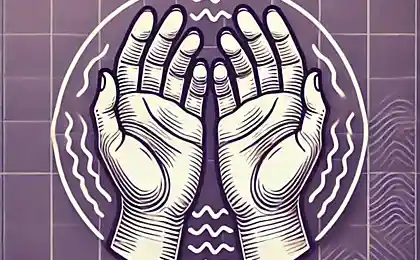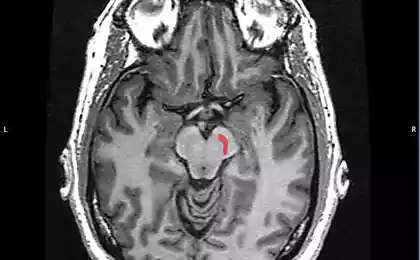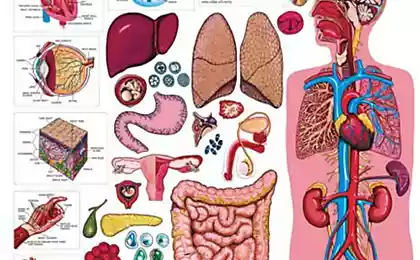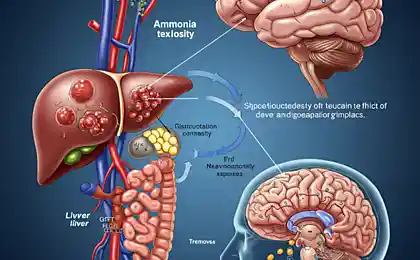452
Tremor: when Parkinson's innocent
It is possible that at some point, you saw how your hands are shaking, and the tremor scared you. "Maybe it's Parkinson's disease? I have some neurological problem?" — you ask yourself these questions and get scared even more.
People usually tend to think the worst, therefore, the first thing that you should do in this case is to calm down.
As says Jose Matias Arbela, coordinator of study Group of movement disorders of the Spanish Society of Neurology, nothing terrible happens, while the tremor will not be a regular occurrence and will also hamper your daily mobility.
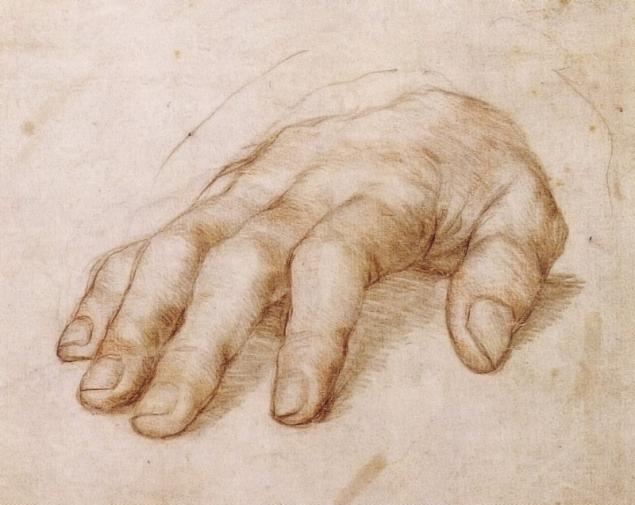
Tremors in the hands, legs, or even in the neck, can have different origins, its causes can vary from simple fatigue to more serious problems.
However, typically, these diseases occur after the age of 65, and only your doctor will tell you the exact diagnosis.
Meanwhile, keep calm and watch is whether this tremor is a single phenomenon, or do you experience it constantly. We, for our part, we will explain you in this article that can serve as its cause.
I have a tremor, why?
What is the tremor? It's shivers that involuntarily arises in any part of our body. This is usually the hands where it is most visible way, but it can also occur in the legs and even in the vocal cords (voice).
Is it something serious? Tremor is always only a symptom, a symptom of what is happening in our body, but not necessarily it should be something dangerous, so we invite you to learn the most common reasons for its occurrence.
1. Fatigue
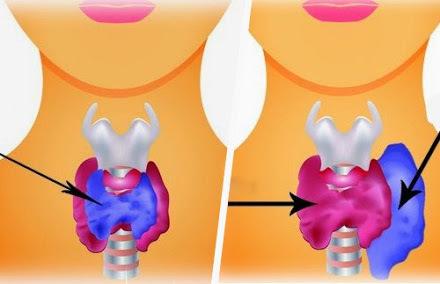
We can see, for example, suddenly begin to shake hands, and, as we have said, if you have already been diagnosed with hyperthyroidism, this should not scare you.
Consult your doctor and follow his advice.
4. Anxiety and stress
The nervous system also suffers, so there's this shaking of the feet, hands, dry mouth, we may even feel spasms in the muscles, and nervous tics.
5. Parkinson's Disease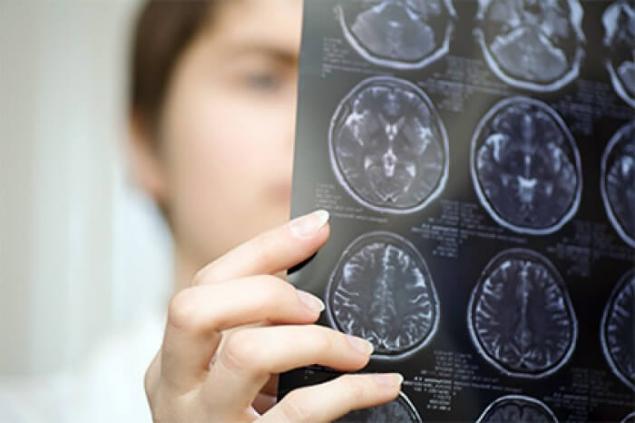
In order to help you differentiate your type of tremor, check out this list of the most common symptoms that typically accompany Parkinson's disease.
However, as we stressed in the beginning of this article, if you see that the tremor persists and even begins to interfere with you doing your regular daily activities and to manipulate objects, seek immediate medical attention.
Let us now look at the characteristic symptoms of Parkinson's disease:
These symptoms may vary from person to person and also depending on the stage of the disease in each patient.
Also interesting: Parkinson's Disease: 20 years before it will be too late
Briton defines Parkinson's disease by smell
However, it never hurts to know these symptoms. However, remember that the cause of hand tremors not always Parkinson's disease.published
Source: steptohealth.ru/tremor-ne-vsegda-ego-prichinoy-yavlyaetsya-bolezn-parkinsona/
People usually tend to think the worst, therefore, the first thing that you should do in this case is to calm down.
As says Jose Matias Arbela, coordinator of study Group of movement disorders of the Spanish Society of Neurology, nothing terrible happens, while the tremor will not be a regular occurrence and will also hamper your daily mobility.

Tremors in the hands, legs, or even in the neck, can have different origins, its causes can vary from simple fatigue to more serious problems.
However, typically, these diseases occur after the age of 65, and only your doctor will tell you the exact diagnosis.
Meanwhile, keep calm and watch is whether this tremor is a single phenomenon, or do you experience it constantly. We, for our part, we will explain you in this article that can serve as its cause.
I have a tremor, why?
What is the tremor? It's shivers that involuntarily arises in any part of our body. This is usually the hands where it is most visible way, but it can also occur in the legs and even in the vocal cords (voice).
Is it something serious? Tremor is always only a symptom, a symptom of what is happening in our body, but not necessarily it should be something dangerous, so we invite you to learn the most common reasons for its occurrence.
1. Fatigue
- General fatigue and muscular overload can cause our limbs to tremble.
- Sure you it's ever happened: you've been carrying something heavy, and then, getting rid of the cargo, noticed that shaking. There is nothing to worry, just overload our muscles react to such spasms.
- Also keep in mind that sometimes, if you don't drink enough water during the day or during sports, your cells will also experience dehydration, and it can cause spasms and tremor.
- People with chronic fatigue can also experience tremor.
- Physiological tremor is usually found among the elderly, aged 65 years. It has nothing to do with Parkinson's disease, and its cause is a small change in the neural circuits of the brain responsible for balance.
- Parkinsonian tremor is caused by disorder of the basal ganglia, cerebellum and spinal cord.
- Natural tremor mainly occurs after application, some effort, unlike Parkinson's disease, which manifests itself in a state of rest.
- Affects the head and hands, and we feel after lifting something heavy, for example, moving a chair or making a sudden movement.
- Natural tremor, as we have said, manifests itself in older people, however, it is worth noting that this is not a neurodegenerative phenomenon, it does not progress and worsen quality of life. With him it is possible to live with the appropriate treatment.

- Cause of hyperthyroidism is overactivity of the thyroid gland. Usually it is associated with the emergence of so-called "goiter" and is more common in women aged 30 to 50 years.
- In this disease tremor is not uncommon, since the hyperthyroidism is accompanied by a General nervousness, anxiety and excitement.
We can see, for example, suddenly begin to shake hands, and, as we have said, if you have already been diagnosed with hyperthyroidism, this should not scare you.
Consult your doctor and follow his advice.
4. Anxiety and stress
- Emotional stress, anxiety, General anxiety is often accompanied by various symptoms, including tremor.
- Its cause is usually the hit of the hormone cortisol in our blood. This affects many of the basic functions of the body, causing a wide range of disorders, from tachycardia to hypertension.
The nervous system also suffers, so there's this shaking of the feet, hands, dry mouth, we may even feel spasms in the muscles, and nervous tics.
5. Parkinson's Disease

In order to help you differentiate your type of tremor, check out this list of the most common symptoms that typically accompany Parkinson's disease.
However, as we stressed in the beginning of this article, if you see that the tremor persists and even begins to interfere with you doing your regular daily activities and to manipulate objects, seek immediate medical attention.
Let us now look at the characteristic symptoms of Parkinson's disease:
- Tremor: as a rule, he starts in the hands and is more common at rest
- Stiffness: patients suffering from Parkinson's disease often exhibit the lack of muscle elasticity
- Bradykinesia: all movements are performed very slowly, as if in slow motion
- The difficulty of maintaining balance: people with this disease go in short steps, for fear of falling, loss of dexterity
- Depression: many people who suffer from Parkinson's disease often experience depression and emotional changes in the early stages of development of this disease
- Hard to swallow and chew your food
- Problems with urination
- Sleep problems
These symptoms may vary from person to person and also depending on the stage of the disease in each patient.
Also interesting: Parkinson's Disease: 20 years before it will be too late
Briton defines Parkinson's disease by smell
However, it never hurts to know these symptoms. However, remember that the cause of hand tremors not always Parkinson's disease.published
Source: steptohealth.ru/tremor-ne-vsegda-ego-prichinoy-yavlyaetsya-bolezn-parkinsona/



